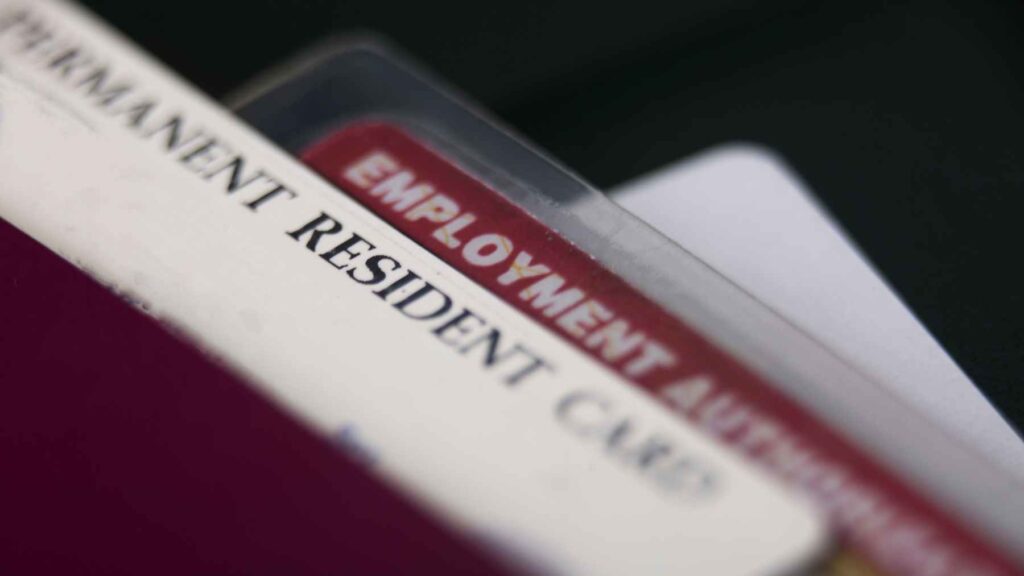The journey to U.S. citizenship is life-changing. It opens up a whole new world. Everyone dreams of becoming an American citizen to find a brighter future, chase new chances, and live the American values. Today, we’re inviting you to start this journey. We’ll guide you through naturalization, showing you how to open the door to the amazing benefits of being a U.S. citizen.
Eligibility Criteria for U.S. Citizenship through Naturalization
To become a U.S. citizen through naturalization, certain criteria must be met. This option is for those with a living in the U.S. for a set time.
Age Requirement
The Naturalization Process: Steps to Achieve U.S. Citizenship
Becoming a U.S. citizen through naturalization is a journey with several steps. This process allows you to navigate smoothly. It helps you work towards your American citizenship dream.
Evaluating Your Eligibility
Before starting, make sure you’re eligible. You need to have a Green Card for a specific time. The first step is filing the Application for Naturalization (Form N-400). You must include essential documents.
Submit Your Application and Pay the Fee
After filling out Form N-400 and gathering documents, submit it to USCIS. Include the required fee. Check the USCIS site for the latest fee information.
Attend the Biometrics Appointment
Once your application is in, you’ll get a biometrics appointment. At this meeting, USCIS will take your fingerprints and a photo. This is for checks and to confirm your identity.
Prepare for the Citizenship Interview and Test
Next comes preparation for the citizenship interview and test. You’ll be tested on English, civics, and U.S. history. Use USCIS study materials to get ready for the interview.
Participate in the Naturalization Ceremony
When your application is approved and you pass the interview, you’ll attend a ceremony. Here, you’ll take the Oath of Allegiance. This marks the end of your naturalization process, a proud moment in your life.
Navigating Challenges and Ensuring Success in the Naturalization Journey
The road to U.S. citizenship is filled with hurdles. From learning legal rules to facing the citizenship test, applicants face many tests. Yet, you are not alone in this journey.
When you start the naturalization process, use all available help. The U.S. Citizenship and Immigration Services (USCIS) offers key advice and information. Local groups also hold classes and workshops. These improve your English and help you understand what’s needed.
If you have special issues, an immigration lawyer might be key. They know all about naturalization and can give specific help. They help with things like long times away from the U.S. or trouble with the law.
To reach your goal of U.S. citizenship, staying informed is vital. With proper help and prep, moving through naturalization can be smooth. So, keep at it and turn your American dream into a reality.

FAQs
What is the naturalization process to become a U.S. citizen?
The naturalization process is a series of steps taken by a permanent resident to become a citizen of the United States. This includes submitting an application for naturalization (Form N-400) to the U.S. Citizenship and Immigration Services (USCIS), attending a biometrics appointment, passing the citizenship interview and naturalization test, which assesses English and civics knowledge, and taking the Oath of Allegiance at a naturalization ceremony.
What are the eligibility requirements for naturalization?
Eligibility for naturalization includes being at least 18 years of age, having been a permanent resident (green card holder) for at least 5 years or 3 years if married to a U.S. citizen, demonstrating continuous residency and physical presence in the United States, showing good moral character, and passing English and U.S. civics tests.
Can I have dual citizenship if I become a citizen through naturalization?
Yes, the United States allows dual citizenship. This means you can be a citizen of the United States and another country at the same time. However, not all countries allow dual citizenship, so it’s important to check the laws of the other country.
What is the citizenship test and what does it include?
The citizenship test is part of the naturalization process and includes two components: an English test and a civics test. The English test assesses your ability to read, write, and speak in English. The civics test covers U.S. history and government knowledge. Applicants are given questions from a predefined list and must answer correctly to pass.
How much does it cost to apply for naturalization?
The application fee for naturalization (Form N-400) is subject to change, so it’s crucial to check the latest fee on the U.S. Citizenship and Immigration Services (USCIS) website. Fee waivers and reductions may be available for eligible applicants based on income levels or other factors.
What is a Certificate of Citizenship, and how is it different from naturalization?
A Certificate of Citizenship is issued to a person who automatically becomes a citizen of the United States after birth but was born outside the United States, whereas naturalization is the process for someone not a citizen at birth to voluntarily become a U.S. citizen. Both documents serve as proof of U.S. citizenship, but they are obtained through different processes.
Can I apply to become a citizen if I was born outside the United States to American parents?
Yes, individuals born outside the United States to U.S. citizen parents may already be U.S. citizens ‘by birth’ and might not need to go through the naturalization process. However, they might need to apply for a Consular Report of Birth Abroad (CRBA) or a Certificate of Citizenship to prove their citizenship status.
What happens if my application for naturalization is denied?
If your application for naturalization is denied, USCIS will provide the reasons for the denial in writing. You may have the opportunity to appeal the decision or you can address the reasons for denial and submit a new application after the required waiting period.
Is it necessary to renounce my previous citizenship when I become a U.S. citizen?
No, the United States does not require you to renounce your previous citizenship when you become a U.S. citizen through naturalization. The United States allows for dual citizenship, which means you can retain your original nationality while also being an American citizen, as long as your original country allows it.
What are the benefits of obtaining U.S. citizenship through naturalization?
Benefits of becoming a United States citizen through naturalization include the right to vote, eligibility for certain public benefits and jobs, protection from deportation, the ability to bring family members to the United States, and the ability to obtain citizenship for children born abroad. Additionally, U.S. citizens have the right to apply for a U.S. passport, which allows for visa-free travel to many countries.

